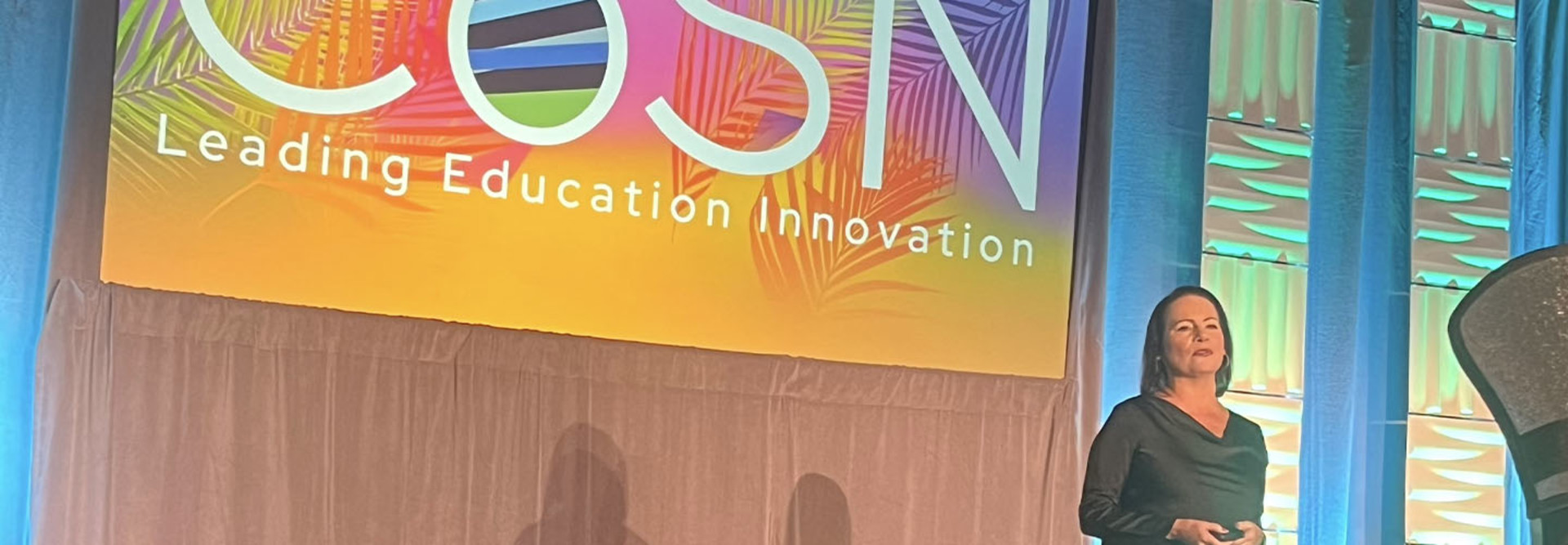A 2023 CoSN survey found that 55 percent of K–12 technology leaders come from an educational or instructional background. And as she spoke to 1,100 technology leaders, opening session keynote speaker and former Washoe County School District and Highline Public Schools superintendent Susan Enfield explained, “Leadership isn’t about a title. Leadership is a commitment to the work of serving children. But I think it's bigger than that. It's got to be a commitment to growing a fellow leader.”
She added that in order to do right by children, truly creative and innovative leaders take risks. They must also commit to “making our lives harder.”
“When are you going to step it up and join me?” asked @SuptEnfield, noting the importance of taking risks to be innovative, creative and do so at a rapid pace in #k12. #futureofeducation #edchat pic.twitter.com/WIKaXHwatj
— EdTech K–12 Magazine (@EdTech_K12) April 8, 2024
And while it is incredibly important that everybody in K–12 see themselves as part of the leadership fabric, Enfield said, mentorship and sponsorship is important to gaining official leadership titles.
“Mentoring is really important, but it's really more guidance and advice and conversation, where sponsorship is action,” she explained. “So, sponsorship entails actually using your political capital to help advance a colleague in their career. It’s putting your reputation on the line to advocate for someone to step into a role.”
RELATED: Education leaders share their insights after transitioning to ed tech.
The importance of mentorship and sponsorship was also noted as a driving force in helping women become CTOs. At the women in technology breakfast, Ivy Nelson, instructional technology manager at Belton School District 124, shared the results of her doctoral research on what hinders women CTOs in K–12. Those she interviewed revealed that sponsors provided the boost that aspiring women CTOs needed.
Nelson also found that professional networks, self efficacy, having a growth mindset and family support were also helpful.
“Our major finding was that self efficacy and a growth mindset could mitigate external forces,” she said. “So, when you're faced with that sexism or that bias, how do you overcome that? Having a mindset so that a setback is a temporary problem: We can overcome it. We can strategize, we can find ways to get through it.”
That resilient mindset is particularly valuable for breaking down silos. Kelly May-Vollmar, a former CTO who is now superintendent of Desert Sands Unified School District, spoke with Enfield on stage as part of the keynote and shared the importance of being bold and unapologetic about making change.
“If you work in a district that is still siloed, we have to just say, enough is enough,” she said. “You have to push until that is no longer the case because it is absolutely, every single day, negatively impacting students. We cannot do our best work and serve students if we’re working in silos. So, push and push and push and push until you can change that.”
Join EdTech as we provide written coverage of CoSN2024. Bookmark this page and follow us on X (formerly Twitter) @EdTech_K12.













